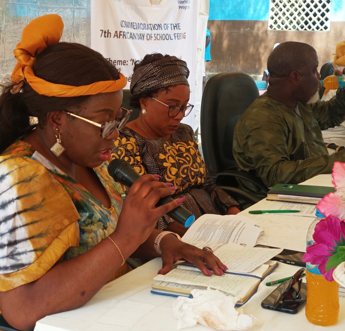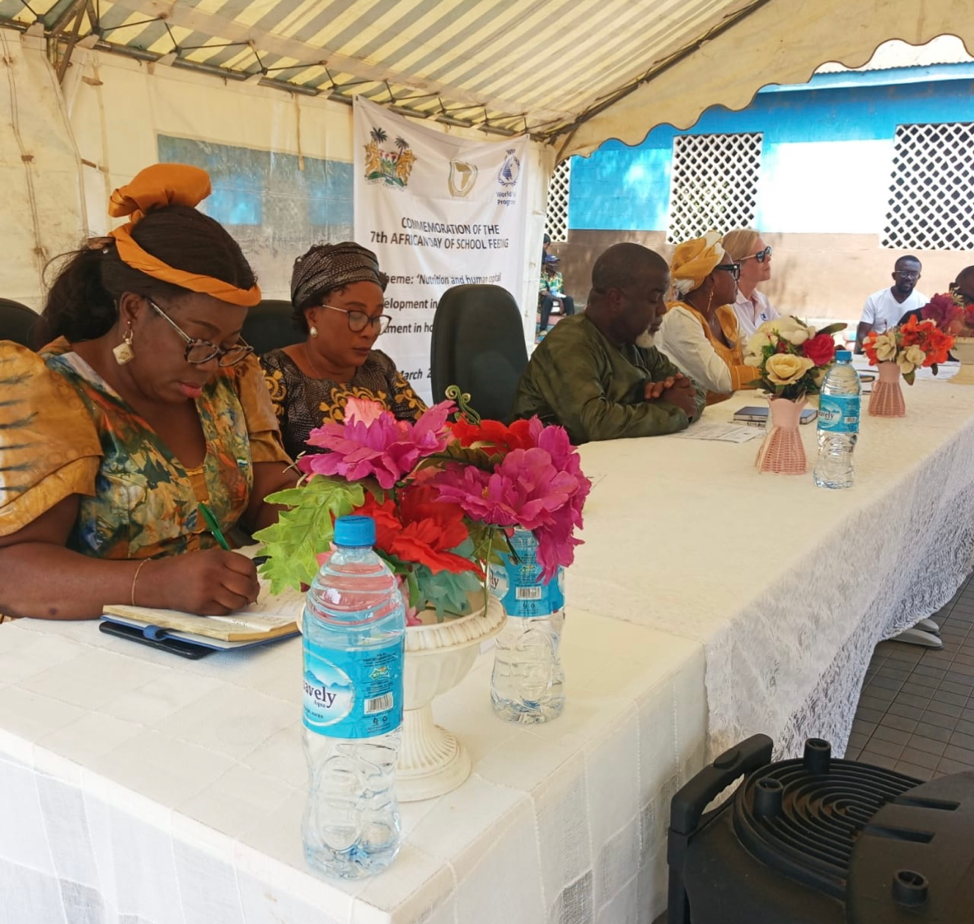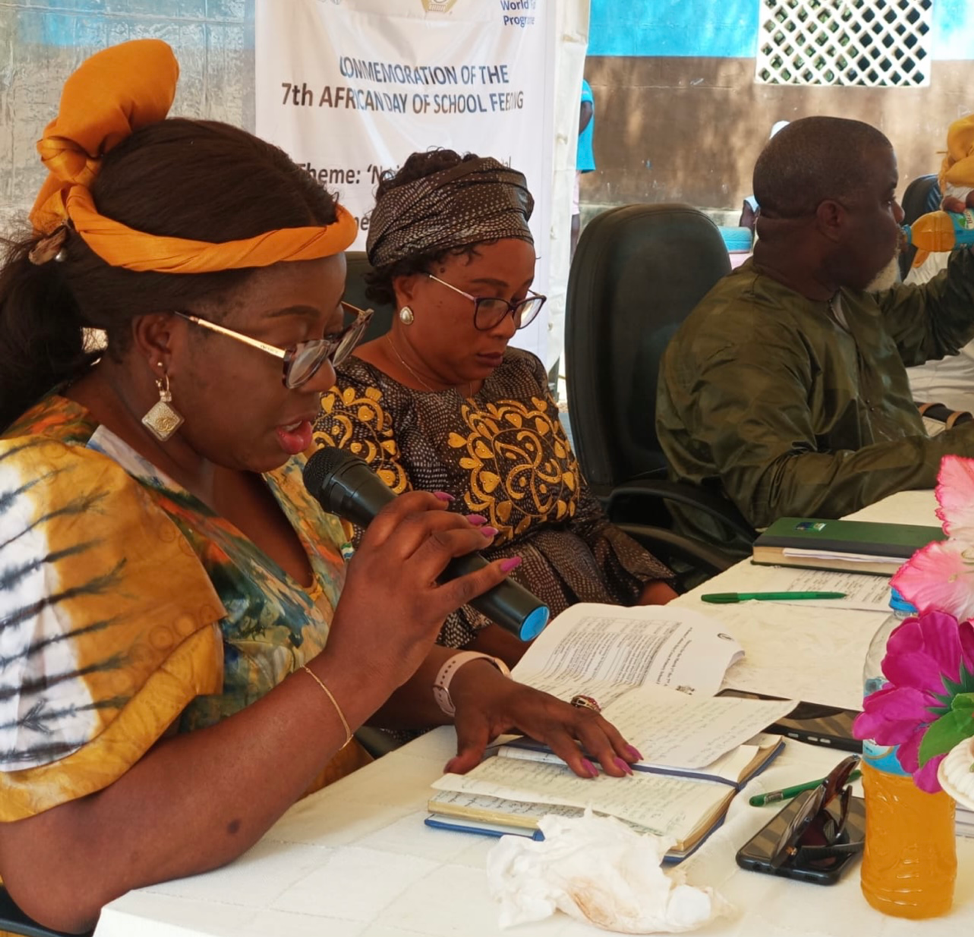
The Deputy Country Director World Food Programme (WFP) Sierra Leone, Yvonne Forsen has said that 65 million children received school meals across Africa as the continent observed the African Day of School Feeding, with 20 million children living in Africa including Sierra Leone. She made this pronouncement in Kambia during the commemoration of the 7th African Day of School Feeding organized by the Ministry of Basic and Senior Secondary Education (MBSSE) in collaboration with WFP and other partners.

‘Nutrition and human capital development in Africa through increased investment in home-grown school feeding’ is the theme of this year’s commemoration. The event brought together Ministries, UN agencies, MDAs and other partners encouraging bold actions to strengthen and scale up home-grown school feeding programme in Sierra Leone. Since January 2016, the African Union had designated March 1 every year as African day of School Feeding for countries in Africa to renew and scale-up commitment to deliver home-grown school feeding to advance human capital development and to achieve the Sustainable Development Goals especially 2, 3 and 4.
The Roman Catholic Holy Cross Primary school in Rokupr, Kambia district is one of the 17 schools where MBSSE, JICA and WFP are piloting the home-grown school feeding programme. Deputy Country Director WFP said that the African member states, the African union and UN partners have increasingly recognized and prioritized well designed and robust home-grown school feeding programmes to contribute to sustained growth and human capital development. While commending President Bio for introducing the National School Feeding Policy which embraces the home-grown approach.
School feeding is a beneficial investment for the development of a country. In the short and medium term, it attracts and retains children in school, improves their health while simultaneously boosting the local economy, supporting agricultural development, and strengthening the local food systems.
Deputy Minister 2 of MBSSE, Mamusu Massaquoi recognized the positive impact of the introduction of school feeding programme on the Free Quality Education initiative noting that the home-grown school feeding is core in the Government’s flagship programme.

According to the deputy Minister, about 45 percent of school children in mostly food deficit and vulnerable chiefdoms in 2,355pre-primary and primary schools currently benefit from the school feeding programme in Sierra Leone.
The deputy Minister of Agriculture, Dr. Theresa Dick said that the Ministry contributes to the school feeding programme through its district offices by providing the requisite technical expert and quality input in setting up school gardens and community farms. The Ministry she said also supports smallholder farmers engaged in the cultivation of rice and vegetables with the aim of contributing to the school feeding programme.
Representatives from JICA, EU and the Ministry of Health underscored the need for home-grown school feeding and committed their support to the agricultural sector.
The school head teacher, Adama Kargbo thanked WFP and the government for the school feeding programme and stated that it has improved educational outcomes such as enrolment and attendance of school children.



